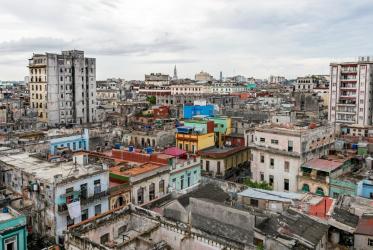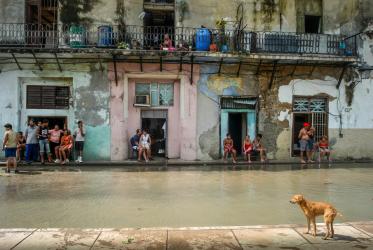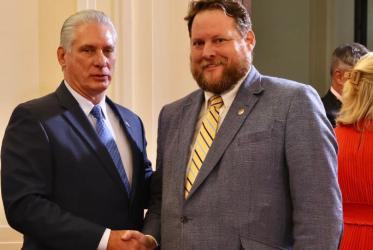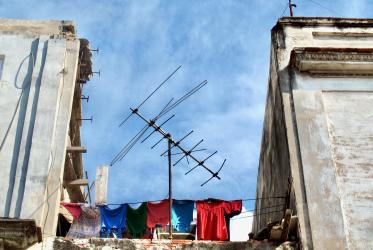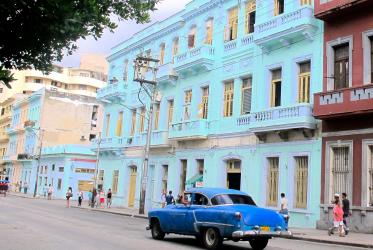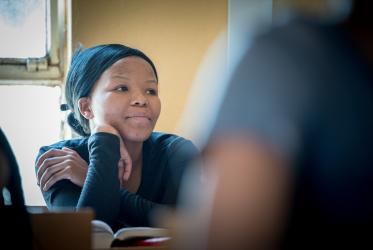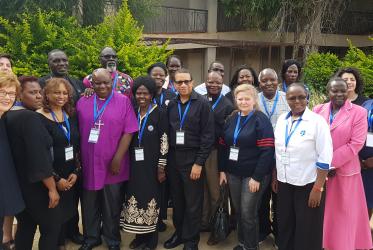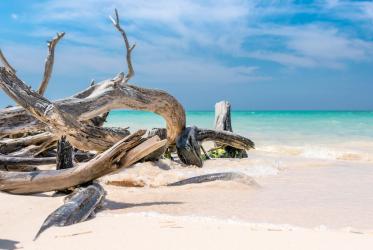Displaying 1 - 20 of 23
African Churches mark International Women’s Day
09 March 2021
Listening together to the pain of violent spaces
28 February 2020
WCC prays for Caribbean region in wake of strong earthquake
31 January 2020
Diakonia: “a tool to reach abundance of life”
24 July 2018
Seven weeks of Lent highlight water justice in Latin America
12 February 2018
African women embark on pilgrimage in Burundi
29 November 2017
WCC and AACC express grave concern over situation in Burundi
18 December 2015
WCC greets new general secretary of CLAI
07 August 2015
